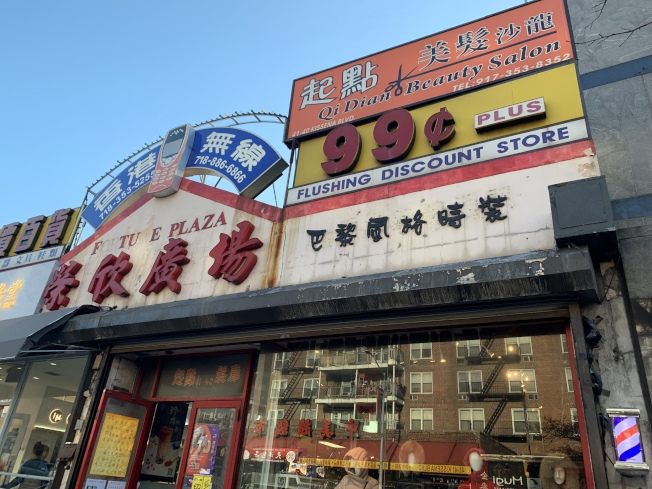
World Journal
Chinese-run dollar stores in Flushing, including one that closed last month after 20 years in business, have been struggling recently to stay afloat.
Read the original story in Chinese at World Journal
Translated by Rong Xiaoqing
Double Star Trading, a dollar store that operated in Flushing for more than two decades, shut its door for good at the end of November. The shop’s closing sale, which took place during the holiday shopping season, attracted customers who formed queues in front of the store, many of whom said they’d miss the location.
Double Star is not the only dollar store in Flushing that went belly up recently: Once ubiquitous in the immigrant neighborhood, the Chinese-run discount shops are now struggling thanks to the competition from newly-arrived chain stores, a scorching trade war between the U.S. and China, rising rents and demographic changes in the area.
Located at 135-05 Roosevelt Ave., Double Star provided a rich variety of daily necessities, home products, hardware, electronic appliances, Chinese-style kitchenware and crafts. The notice of closing posted before Thanksgiving attracted a big crowd to the store. Many said it was hard to say farewell.
Weiwei Wang, a customer coming to purchase the Chinese style kitchenware, said she moved from Taiwan to New York two years ago, and Double Star was like a partner who helped her start her new life here. Ms. Zheng, a resident living on Northern Boulevard who came to take advantage of the closing sales, said that while there’s another dollar shop run by non-Chinese owners closer to her apartment, she still prefers to come to Double Star so she can communicate with the salesperson there in Chinese.
Ms. Zhou, the owner of Double Star, said she and her husband enjoyed their time in Flushing. But the rents there have been rising rapidly and are now more than they could afford. She said they appreciate their loyal customers, and won’t rule out the possibility of reopening the store somewhere else.

Voices of New York spotlights ethnic and community reporting from around the city. Click here to read more.
Another dollar store, Main 99 at 36-47 Main Street, which was run by non-Chinese owners, also closed recently, and many of the surviving stores that sell similar wares are struggling to stay afloat.
Linda Huang, who runs a store at the intersection of Flushing’s Main Street and 40th Road, said she often visited Double Star in the early days when she came to the U.S. 20 years ago. There were only a few Chinese supermarkets in downtown Flushing then, and Double Star, together with the Good Luck Foodmarket across the street, were two of the most popular shops among Chinese immigrants.
Huang said budget chain stores, like Daiso, have set their feet in Flushing one after another, worsening the environment for independent dollar shops that had already been under pressure from high rents and taxes.
But Huang also pointed out how the Chinese-run dollar stores have their own competitive edge, appealing specifically to Chinese shoppers, especially those who are new to the area.
“New immigrants can come to us and get all the daily merchandises they need to start their life in a new country by one stop in a culturally familiar environment,” said Huang. “This is not what the non-Chinese run stores and chain stores can match.”
Other than pricey rents, the intensifying trade war between the U.S. and China has also dealt a heavy blow to Chinese-run dollar stores by pumping up the prices of their merchandise, sometimes even higher than the prices offered by chains.
Paul Lin, manager of a dollar store on Kissena Boulevard, said the situation prompted him to revamp his supplies, adding new products such as wedding and back-to-school merchandise to remain competitive.
“We still sell products catering to the needs of new immigrants such as toiletries, slippers and towels. But we have added new lines like back-to-school, weddings and funerals to explore new markets,” Lin said.









One thought on “Flushing’s Chinese-Run Dollar Stores Struggling Amid Rising Rents and U.S.-China Trade War”
The U.S. has an operable refining capacity of about 18.62 million b/d, which shrank to as low as 13.32 million b/d in April 2020 before rebounding to 14.68 million b/d, according to data from the Energy Information Administration (EIA). About 1 million b/d are likely to be permanently shuttered because of poor refining margins due in part to the demand erosion wreaked by COVID-19.